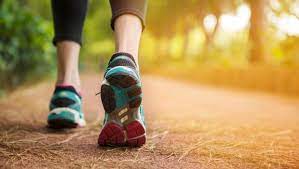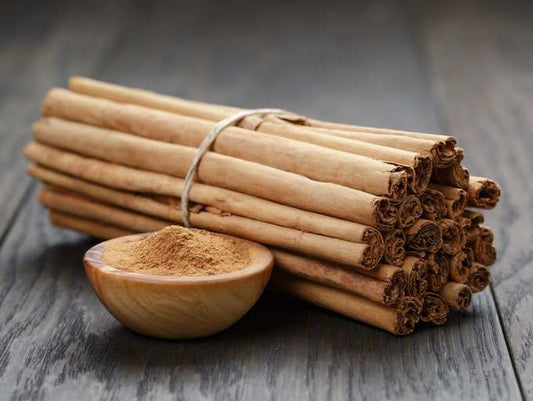- Practice High Intensity Interval Training at least twice a week. See this study for a low impact walking version of HIIT – Ten weeks of high-intensity interval walk training is associated with reduced disease activity and improved innate immune function in older adults with rheumatoid arthritis: a pilot study
- Get adequate sleep. Being tired all teh time wreaks havoc with your body and your immune system.
- Cut back on the booze.
- Practice meditation to reduce your stress levels and link it with deep (belly) breathing.
- Try to stay positive by Identifying the many hidden upsides to any of the so-called downsides.
One of the best ways for you to survive Covid-19 and any other viruses out there currently or that may arise in the future is for you to build a strong immune system.
A new article from New Scientist (link below) explores this very topic: and has this great quote: “…If you want to stay alive and well for as long as possible, looking after your immune system is a no-brainer – especially now the new coronavirus is being called the biggest threat to public health since the 1918 flu…”
How to fight infection by turning back your immune system’s clock
Here’s a summary of the findings (sorry if it’s a bit long winded but it’s good to understand in terms of knowing your body):
1. Your immune system is the second most complicated system in your body (only your brain is more intricate). “…It consists of hundreds of cell types and signalling molecules controlled by some 8000 genes, interacting in a network of near-infinite complexity…”
2. Your immune system gradually deteriorates as you age and is referred to as “immunosenescence”. When you hit 60 it starts to effect your health. “…The older you get, the weaker your immune system becomes, and the more likely you are to get seriously ill or die because of it…”
3. There are 2 versions of your immune system – Innate (these are the first line defences that respond early to an invasion), and Adaptive (more targeted, slower using precision weapons such as T-Cells, B-Cells and antibodies, plus remembers responses to past diseases preventing you getting certain diseases like Coronavirus twice).
4. Weakening of the immune system (immunosenescence) starts slow but early in life (from puberty) and is accelerated if you smoke, are obese and/or don’t exercise regularly. Your immune system can also burn out if you are over-exposed to infectious diseases. Equally if you aren’t exposed early in life to enough infections and parasites this can open you up later in life to autoimmune disorders and severe allergies. It seems like there is a fine balance!
5. Until only recently it was not possible to determine a persons immune age. In 2019 researchers from the Stanford University of California cracked it using a “multiomics” approach (looks at your genome, immune system and protein function). They then give you an immune age number which tells you where you are along a predictable immune system trajectory (based on following 135 volunteers in 2 different age brackets over 9 years).
6. The reason our immune systems decline seems to be related to the fact that as we age our immune cells don’t respond as quickly or as accurately as they did when we were younger. An example of this is our most common white blood cell – Neutrophils. These form part of our Innate (first defence) immune system – “…Neutrophils aren’t antiviral so won’t prevent you catching coronavirus or help you beat it, but they will protect you from the real danger, which is pneumonia…” As our immune systems age Neutrophils become less adept at finding intruders and they also become very clumsy bumbling around and causing inflammation in our bodies as they do. It’s almost like their SatNav systems are out of whack.
7. Apparently the cholesterol reducing drugs called statins have shown promise in re-setting the SatNav of Neutrophils (although some scientists believe statins have other nasty side-effects). Another less dangerous way to rejuvenate your Neutrophils is to exercise regularly. Those who do at least 10,000 steps per day had neutrophils as good as young adults!
8. Three vitamins show real promise (in terms of clinical studies) in enhancing your immune system according to Dayong Wu, a nutritional immunologist at Tufts University in Boston:
– Vitamin E – although vitamin E at high doses can be toxic “…Wu recommends people over 65 routinely take 200 international units (IUs) of vitamin E. “It may help immune function. It doesn’t hurt,”…” If you want to convert 200IU to mg: 1 IU = 0.67 mg for d-alpha-tocopherol or 1 IU = 0.9 mg for dl-alpha-tocopherol.
– Vitamin D3 – “…A 2017 review of the evidence for taking vitamin D supplementation concluded that it prevents upper respiratory tract infections. About 1000 to 2000 IUs should be safe and beneficial, says Wu, but people shouldn’t go higher than that because big doses actually suppress T-cell function…” I would also scale back in summer months or if you work outside regularly.
– Zinc – “…“It is very effective for viral infections,” says Wu. Though he adds, “be cautious, the effective window is narrow and an overdose will suppress your immune system”…” The RDA for Zinc for Adults is 10mg a day which (in my personal opinion) should be safe and effective as a safety net.
9. Janet Lord at the University of Birmingham, UK reiterates the importance of exercise in keeping a healthy immune system. “…Asked what one thing she would recommend to strengthen your immune system, she says: “Increase your step count to 10,000 per day.” In the face of the new coronavirus, it is more important than ever to find ways to stay active – even in lockdown or isolation, which isn’t going to be easy…”
10. What you eat (or don’t) will also improve your immune system:
– Look after your gut health: “…Lord’s team analysed patients with the diarrhoea-causing gut pathogen Clostridioides difficile. Their immune age was off the scale, she says, 10 to 20 years higher than their chronological age. But after they were given a faecal transplant from healthy younger donors, it dropped rapidly…” To achieve similar results eat a healthy, varied diet full of fibre and fermented foods such as sauerkraut, and kimchi. I also take this: Bone Broth Powder daily to boost my gut health.
– Intermittent Fasting (16/8, Bulletproof Diet) works wonders for your immune system too. “…Even done once a week, this is an effective way of slowing ageing and strengthening the immune system…”
– Keeping your weight down also benefits your immune system. “…According to Bonnie Blomberg at the University of Miami in Florida, being obese suppresses the immune system to a similar extent as being immunosenesced…”
Lastly – below are some additional tips I found that will boost your immune system:


